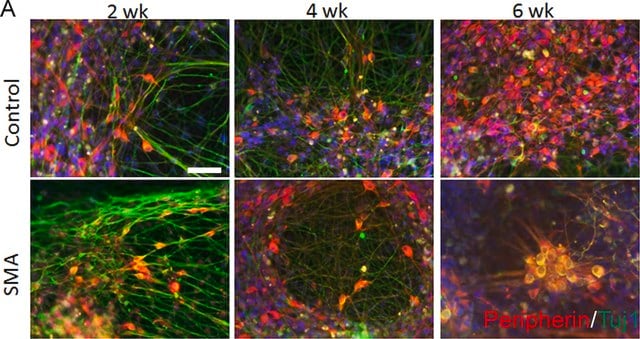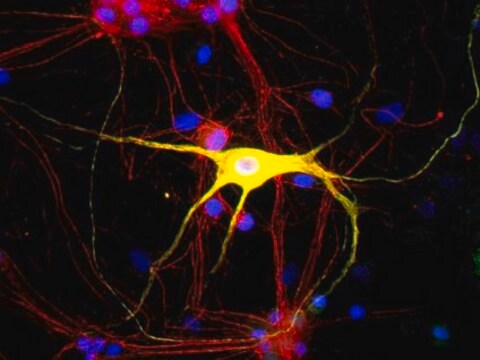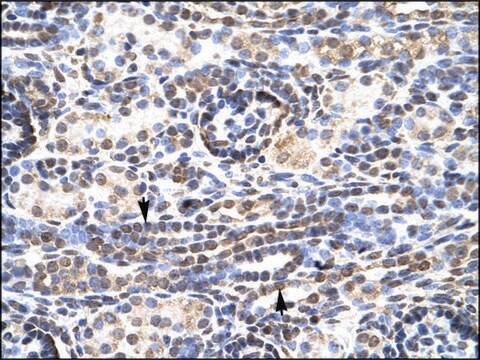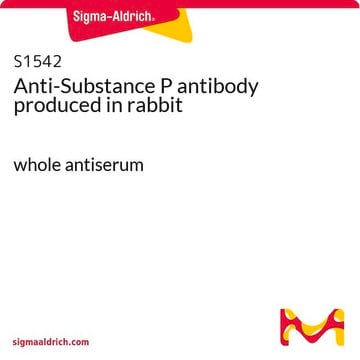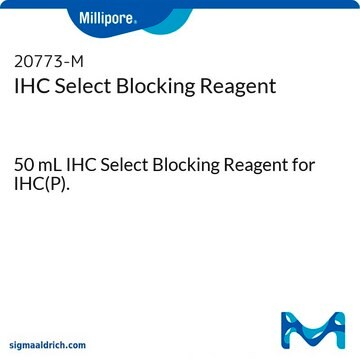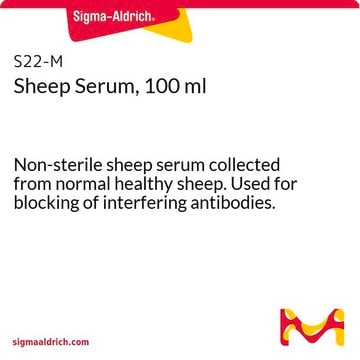P0072
Anti-phospho-PDCD4 (pSer67) antibody produced in rabbit
~1 mg/mL, affinity isolated antibody, buffered aqueous solution
Sinonimo/i:
Anti-Neoplastic transformation inhibitor, Anti-Nuclear antigen H731, Anti-Programmed cell death 4, Anti-Protein 197/15a
Scegli un formato
About This Item
Prodotti consigliati
Origine biologica
rabbit
Coniugato
unconjugated
Forma dell’anticorpo
affinity isolated antibody
Tipo di anticorpo
primary antibodies
Clone
polyclonal
Stato
buffered aqueous solution
PM
antigen ~51 kDa
Reattività contro le specie
rat (predicted), mouse (predicted), human
Concentrazione
~1 mg/mL
tecniche
immunoprecipitation (IP): 5-10 μg using lysates of HEK-293T cells starved for 48 hours and then treated with 20% FCS
western blot: 1-2 μg/mL using lystes of HEK-293T cells starved for 48 hours and then treated with 20% FCS
N° accesso UniProt
Condizioni di spedizione
dry ice
Temperatura di conservazione
−20°C
modifica post-traduzionali bersaglio
phosphorylation (pSer67)
Informazioni sul gene
human ... PDCD4(27250) , SELP(6403)
mouse ... Pdcd4(18569)
Descrizione generale
Applicazioni
Azioni biochim/fisiol
Stato fisico
Esclusione di responsabilità
Non trovi il prodotto giusto?
Prova il nostro Motore di ricerca dei prodotti.
Prodotti correlati
Codice della classe di stoccaggio
10 - Combustible liquids
Punto d’infiammabilità (°F)
Not applicable
Punto d’infiammabilità (°C)
Not applicable
Dispositivi di protezione individuale
Eyeshields, Gloves, multi-purpose combination respirator cartridge (US)
Scegli una delle versioni più recenti:
Certificati d'analisi (COA)
Non trovi la versione di tuo interesse?
Se hai bisogno di una versione specifica, puoi cercare il certificato tramite il numero di lotto.
Possiedi già questo prodotto?
I documenti relativi ai prodotti acquistati recentemente sono disponibili nell’Archivio dei documenti.
Active Filters
Il team dei nostri ricercatori vanta grande esperienza in tutte le aree della ricerca quali Life Science, scienza dei materiali, sintesi chimica, cromatografia, discipline analitiche, ecc..
Contatta l'Assistenza Tecnica.